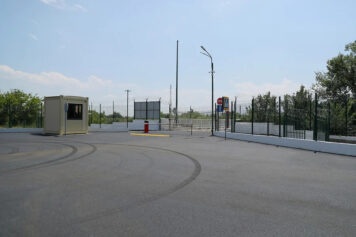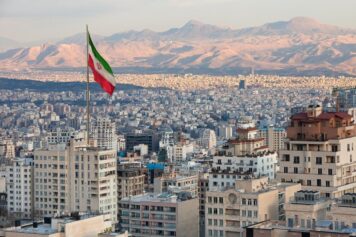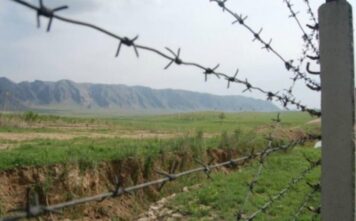On the inflation in Turkey and devaluation of the Turkish lira
19.11
2024
On the inflation in Turkey and devaluation of the Turkish lira
The currency devaluation and inflation, of course, are processes interconnected with complex laws. Apart from the economic aspect, these interdependencies have geopolitical, military, socio-psychological, and other components as well.
Devaluation of the Turkish Lira: According to the graph below, over the past decade, the exchange rate of 1 US dollar has risen from 2.2 Turkish lira to 34.7 Turkish lira. This macroeconomic indicator, which continuously affects the daily life and quality of life in Turkey, has already led to severe depression from a psychological point of view.
Early Stages of the Turkish Lira Devaluation: The rapid decline of the Turkish lira commenced, following Donald Trump’s well-known tweet made in 2018, where he announced the increase of tariffs on steel (50%) and aluminum (20%) imported from Turkey—openly stating that this was aimed at inflaming the devaluation of the Turkish lira.
Efforts by the Turkish government to halt the lira devaluation have so far been unsuccessful, and it is highly probable that Trump’s re-election as U.S. president will only accelerate the lira’s decline. Furthermore, the U.S. will try to increase its economic—and other—leverage over Turkey.
The devaluation of the Turkish lira significantly impacts the country’s domestic and foreign policies. For instance, to stabilize the lira, R. T. Erdoğan has engaged in political negotiations to secure the influx of billions of dollars from Saudi Arabia, Qatar, the UAE, and Azerbaijan into Turkey. Notably, it is quite challenging to ascertain the true scale of these financial flows due to the potential for indirect transfers.
Inflation in Turkey: The devaluation of the Turkish lira against the U.S. dollar inherently causes inflation for goods and services dependent on the dollar—that is, almost everything. Paradoxically, inflation often leads to further inflation: one vicious cycle is that employers are compelled to raise wages to alleviate the negative financial impacts of inflation, which in turn drives up the prices of goods and services.
Turkey-BRICS Relations: Given the aforementioned circumstances, Turkey has been seeking closer ties with BRICS to improve macroeconomic indicators, weather the current economic crisis and diversify its economy (as indicated in R.T. Erdoğan’s speech at the BRICS summit in Johannesburg in 2018). Recently, Turkish Minister of Trade Ömer Bolat said that only after obtaining “partner country” status, Turkey can become a member state. However, as the minister points out, given that BRICS was established amid the East-West global polarization, the U.S., which wields significant leverage over Turkey’s economy and politics, would not allow such a scenario to unfold. Thus, from a geopolitical perspective as well, Turkey finds itself in a rather hopeless situation.
Comments From Daron Acemoğlu: Recently, in response to questions from a Turkish journalist, renowned Armenian economist and Nobel laureate Daron Acemoğlu commented on the current state of Turkey’s economy. According to Acemoğlu, “In 15-20 years, Turkey will be much older and technologically lagging, making it much harder to further fulfill its vast potential.”
The Armenian economist has proposed solutions to curb Turkish inflation, emphasizing the necessity of enhancing the productivity of low-income citizens. Specifically, he stated: “Ultimately, inflation is a symptom. One of the causes of Turkey’s economic problems is poverty; wages are not increasing, and the way to push them up is to increase the minimum wage. Why? Because productivity levels are low. In other words, wages are rather low in the country, yet 50% of the workforce earns the minimum wage. There is a discrepancy. To address this, we need to boost employees’ productivity so that their demand grows, businesses increase their output, incomes rise, employers have the wish to hire these employees and are compelled to pay higher wages, and gladly accept that they should pay higher salaries.”
Acemoğlu puts forward the idea that raising employee productivity will lead to higher wages and a decrease in unemployment, which will positively impact the factors contributing to inflation. This idea has faced significant criticism in the Turkish media, as in practice, wages are not solely and directly dependent on employee productivity. Furthermore, labor exploitation is reportedly a common practice in Turkey, according to sources residing there.
Let us note that currently, the minimum “net” wage in Turkey is approximately equivalent to 190,000 Armenian drams. However, considering the rising costs of nearly all types of goods, especially imported ones, as well as the increase in housing rents and the overall cost of living, it can be definitely stated that the quality of life in Turkey has suffered under Erdoğan’s administration and is continuing to suffer.
In summary, poverty has a tendency to increase in Turkey, while economic dependency on foreign countries, particularly the United States, is inevitably growing. If the economic situation stands this way, it may lead to severe political upheavals.
As far as Armenia is concerned, this situation indicates that Turkey—including through Azerbaijan—will exert political pressure on Armenia in an attempt to seize the “Zangezur corridor”.
Gevorg Galtakyan





